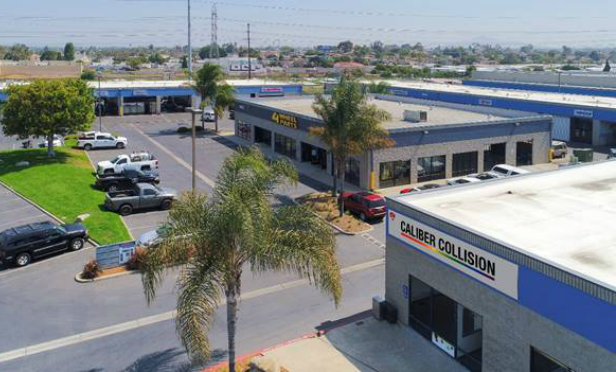 Property managers are driving major value in retail assets—as long as they understand the businesses of their tenants. It's become clear that successful retail tenants make successful retail properties, but there is more to it than simply finding a daily-needs anchor that promises Internet resistance. Case is point is a recent five-building automotive retail property that traded hands in Chula Vista for a 176% over the original investment. The property is located in a retail-zoned corridor—a rarity for automotive projects today, which made it an especially desirable opportunity. While the property was rare because of the zoning, the property management team was integral in driving value, turning the failing and mostly vacant asset into a profitable automotive center.
Property managers are driving major value in retail assets—as long as they understand the businesses of their tenants. It's become clear that successful retail tenants make successful retail properties, but there is more to it than simply finding a daily-needs anchor that promises Internet resistance. Case is point is a recent five-building automotive retail property that traded hands in Chula Vista for a 176% over the original investment. The property is located in a retail-zoned corridor—a rarity for automotive projects today, which made it an especially desirable opportunity. While the property was rare because of the zoning, the property management team was integral in driving value, turning the failing and mostly vacant asset into a profitable automotive center.
The most interesting aspect of this case is perhaps the owner's decision not to change the use. The ownership could have gutted the property and built it out for a more traditional retail use—after all, the project is zoned for retail. Instead, The Heritage Group, the team behind the value-add project, chose to keep the automotive use. “We could have changed the use, but the property has never been anything other than automotive,” Mark Hoekstra, managing director for The Heritage Group, tells GlobeSt.com. “The way the buildings were designed, the slope of the floors, the drainage are all designed for an automotive use. We chose to keep the automotive tenants in the building, and to have no non-automotive tenants. However, you certainly could do it if you wanted to.”
Rather than change the use or go through a lengthy and expensive redevelopment project, Hoekstra instead spent $600,000 to execute a new branding concept at the property and to add national tenants to the mix. He also drove value in other more property-specific ways. “In order to have an automotive use, it requires an conditional use permit,” he explains. “Instead of requiring each tenant to get its own permit, we got a project-wide CUP and a project-wide signage program, which added value to the center. If we rent to automotive tenants, we don't have to go to the city to get a CUP or signage approval because we invested the time and money. That was a big value-add there.”
The property management team also mixed in retailers with an automotive angle as well. “We also focused on the front buildings to get more national tenants that have a retail component,” says Hoekstra. “We have an audio retailer and an automotive parts retailer.” The property management team drove value in the property without changing the use, and although automotive projects get less attention from buyers, the sale of the property still brought in half-a-dozen offers.
The success story here begs the question: is property management becoming a niche business? Hoekstra not only knew this center prior to ownership and had spent time in the center as a customer, he understood the automotive business from a retail perspective. “I looked at the property because I have done a lot of automotive service and repair transactions, and I feel comfortable there. Second, at the time that we bought the property the only tenant was a company called 4-Wheel Parts, and I know the ownership and they are great people.”
Following the sale the Heritage Group has been retained by the new ownership as the property manager.
© Touchpoint Markets, All Rights Reserved. Request academic re-use from www.copyright.com. All other uses, submit a request to [email protected]. For more inforrmation visit Asset & Logo Licensing.






